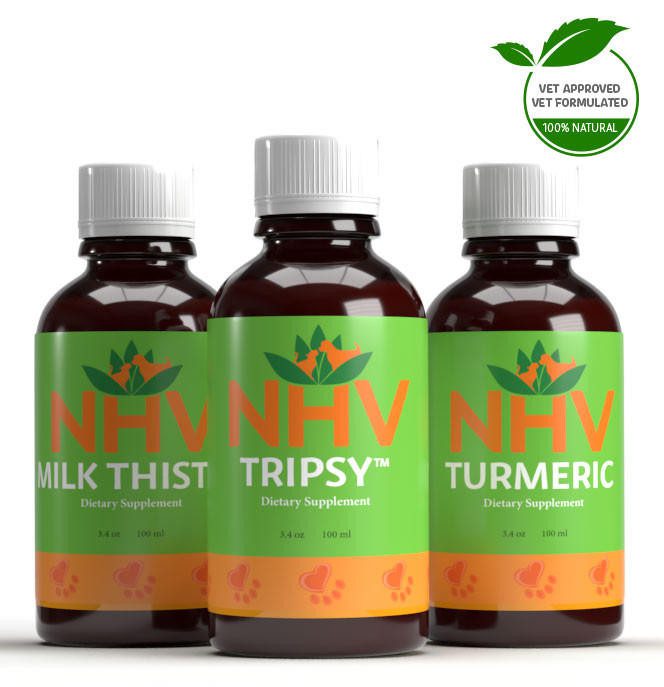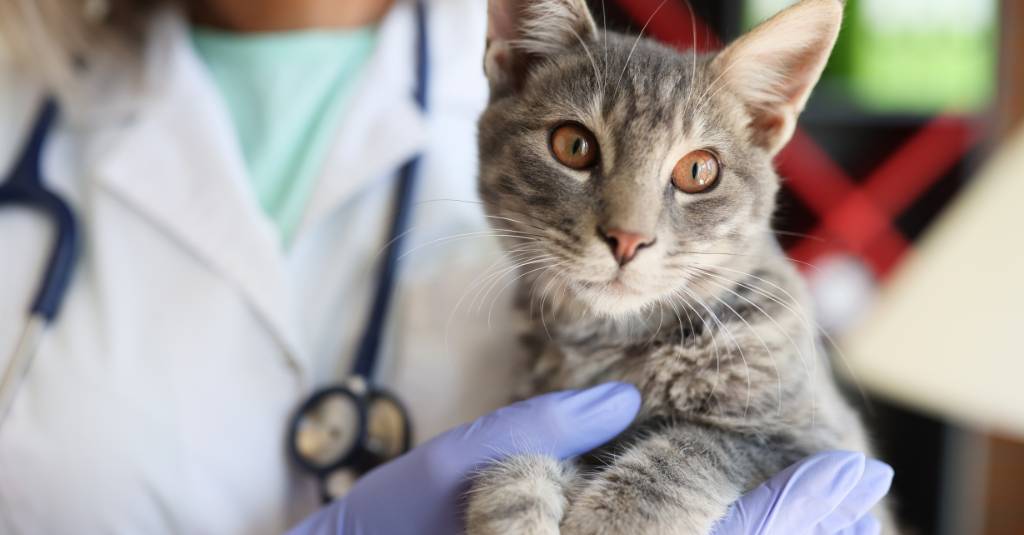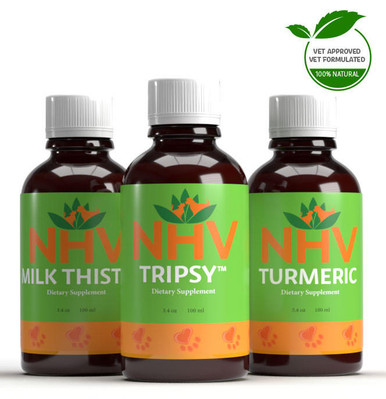kidney & bladder support

free shipping over $96.95 (USA & Canada)
1-877-937-4372 the pet expert hotline

Vet-formulated aid for urinary tract and kidney disorders


As a pet owner, it is essential to understand the various stages of kidney disease in pets
and some of the available treatment options to ensure the health and happiness of our
furry companions. By exploring the treatment avenues and care strategies tailored to each stage of kidney disease, we can help our pets live a comfortable and fulfilling life.
Effectively managing kidney disease in pets requires a multifaceted approach
Join us in this veterinary discussion to gain valuable insights into managing kidney
disease in pets and providing them with the best possible care.
In the initial stage of kidney disease, early detection is paramount. Regular
screenings, including abnormal ultrasound, blood tests, and urinalysis, help identify subtle
changes indicative of kidney dysfunction.
At this stage, it is usually recommended a recheck to look for any signs of
progression.
As kidney disease advances, proactive management becomes crucial. Veterinary
intervention may include diet change to a renal diet, phosphorus and potassium levels
monitoring, and the administration of medications to manage symptoms such as nausea,
weight or muscle loss, lack of appetite, hypertension, and anemia, which commonly
accompany kidney dysfunction.
Furthermore, the implementation of phosphorus binders may be necessary, as it
aids in controlling elevated phosphorus levels, thereby preserving kidney function.
Regular monitoring through follow-up appointments enables veterinarians to adjust
treatment plans as needed, ensuring optimal management of the disease progression.
In advanced stages of kidney disease, the focus shifts towards palliative care and
maintaining the pet’s quality of life.
It is likely the patient starts showing some dehydration, as they decrease urine
concentration ability. In this stage, some pets may require supportive care and
maintenance fluids routinely to alleviate discomfort and address complications such as
electrolyte imbalances. Additionally, dietary management remains integral, with
specialized renal diets formulated to meet the unique nutritional needs of pets with kidney
disease.
Cats with kidney disease can present mild symptoms or no clinical signs in this stage.
Embracing a holistic approach, including environmental enrichment emotional
support, and natural supplements may enhance the overall well-being of pets facing the
challenges of advanced kidney disease.
In stage 4 of kidney disease, it is important to prioritize treatments that can improve
the pet’s quality of life in addition to attempting to slow the progression of the disease.
Efforts to prevent dehydration and malnutrition should be intensified, and feeding
tube intervention may be necessary. In some cases, dialysis or renal transplantation may
be considered as well. It is crucial to work with a veterinarian to determine the most
appropriate treatment plan for each pet.
Effectively managing kidney disease in pets requires a multifaceted approach
encompassing early detection, proactive intervention, and compassionate care
throughout each stage of the disease.
Ensure they always have fresh water available for drinking and monitor your little
one closely.
All treatments for chronic kidney disease (CKD) need to be tailored to the individual
patient.

Tripsy: supports overall kidney, bladder, and urinary tract health due to its potent anti-
inflammatory properties and may aid in addressing urinary infections.
Turmeric: has potent anti-inflammatory and pain management properties, aiding any
discomfort or inflammation your little one may face with chronic kidney disease.
Milk Thistle: Milk Thistle may improve liver and kidney function as the kidneys work
alongside the liver, to manage waste.
Petomega 3: helpful for overall renal disease, due to its anti-inflammatory properties,
which may aid in balancing blood flow within the kidneys.
kidney & bladder support

Vet-formulated aid for urinary tract and kidney disorders
bundle and save with pet expert kits
3 month supply for a small to medium size pet
When your pet has a kidney disorder, you want to provide all the support you can. With NHV’s Kidney Failure Super Support Kit you can do just that. These three powerful plant-based remedies provide exceptional cat kidney support.


When your pet has a kidney disorder, you want to provide all the support you can. With NHV’s Kidney Failure Super Support Kit you can do just that. These three powerful plant-based remedies provide exceptional cat kidney support.

A potent formula containing ingredients such as Marshmallow, which is an anti-inflammatory that controls bacterial infections as well as soothing and softening inflamed tissues.
The main active ingredient in Milk Thistle is Silymarin which helps prevent toxins from binding to the liver.
A well-known herb that has a vast array of health benefits, including reducing inflammation and discomfort.
NHV supplements are formulated by a master herbalist as well as a holistic veterinarian with a combined experience of more than 50 years developing plant-based remedies. Use these supplements to promote health and stimulate healing naturally.
NHV products are safe to use long-term and provide support in addition to conventional medicines. Find out how finding the right balance of vet-recommended treatment for cats, dogs and other pets that have kidney failure can be safely combined with holistic supplements to provide integrative support for the total health and wellbeing of your feline family member. You can read Lemon's Story on how NHV’s proprietary blend of holistic support helped him.
If you have questions about herbal support for your pet's kidney disorders, you can ask an expert who is there to help answer questions and offer guidance because at NHV we want your feline feeling fantastic naturally!
To be taken twice daily. Determine your pet’s weight and then use the easy chart below to determine the correct dose. This is the minimum dosage.
Pet's Weight Dosage
0 - 15 lb = 0.5 ml
16 - 30 lb = 1.0 ml
31 - 45 lb = 1.5 ml
46 - 60 lb = 2.0 ml
61 - 75 lb = 2.5 ml
Over 75 lb = 3.0 ml
For small animals (rabbits, ferrets), avians and reptiles use 1 drop for every 2 lb of body weight.
How to Administer
Shake well before use. The easiest method is to use the dropper provided and place the drops into your pet’s food or favorite treat. You can also use the dropper and squirt directly into the pet’s mouth. Some pets can be finicky, if this occurs consider hiding the drops in foods most pet’s love such as fish, chicken or yogurt or a favorite treat. If your pet only eats dry food then soak a few kibbles at feeding time.
For Best Results
Herbal dietary supplements are beneficial to the health and well-being of your pet and are safe for long-term use. Every pet responds to natural herbal supplements differently, therefore it is important to be consistent and administer the product daily. Supplements generally take two to four weeks to take effect, however this will vary from one animal to the next.
Product Storage
All NHV Natural Pet Products are pure herbal extracts and contain no artificial additives, preservatives or coloring. Shelf life after opening is 6 months and must be refrigerated after opening.
Cautions and Contraindications
Do not use in pregnant or nursing animals.
All information provided by NHV Natural Pet Products is for educational purposes only.
Select your pet's weight to determine the correct dose.
Common symptoms of kidney disease include weight loss, decreased appetite, as well as increased drinking and urination.
Some foods are toxic for pets and can cause kidney damage, including grapes and raisins. It is important to find out whether 'human' foods are safe for your pet before feeding.
These supplements can help to maintain optimal kidney health, hopefully preventing future kidney disease. This kit can also be used to provide support for a cat that has kidney failure, and can be used in tandem with vet-recommended kidney failure treatments.
If kidney disease is well maintained, pets can have a fair to good prognosis. Kidney disease has many stages and prognosis depends on the stage and severity of the kidney disease.
A potent formula containing ingredients such as Marshmallow, which is an anti-inflammatory that controls bacterial infections as well as soothing and softening inflamed tissues.
The main active ingredient in Milk Thistle is Silymarin which helps prevent toxins from binding to the liver.
A well-known herb that has a vast array of health benefits, including reducing inflammation and discomfort.
NHV supplements are formulated by a master herbalist as well as a holistic veterinarian with a combined experience of more than 50 years developing plant-based remedies. Use these supplements to promote health and stimulate healing naturally.
NHV products are safe to use long-term and provide support in addition to conventional medicines. Find out how finding the right balance of vet-recommended treatment for cats, dogs and other pets that have kidney failure can be safely combined with holistic supplements to provide integrative support for the total health and wellbeing of your feline family member. You can read Lemon's Story on how NHV’s proprietary blend of holistic support helped him.
If you have questions about herbal support for your pet's kidney disorders, you can ask an expert who is there to help answer questions and offer guidance because at NHV we want your feline feeling fantastic naturally!
To be taken twice daily. Determine your pet’s weight and then use the easy chart below to determine the correct dose. This is the minimum dosage.
Pet's Weight Dosage
0 - 15 lb = 0.5 ml
16 - 30 lb = 1.0 ml
31 - 45 lb = 1.5 ml
46 - 60 lb = 2.0 ml
61 - 75 lb = 2.5 ml
Over 75 lb = 3.0 ml
For small animals (rabbits, ferrets), avians and reptiles use 1 drop for every 2 lb of body weight.
How to Administer
Shake well before use. The easiest method is to use the dropper provided and place the drops into your pet’s food or favorite treat. You can also use the dropper and squirt directly into the pet’s mouth. Some pets can be finicky, if this occurs consider hiding the drops in foods most pet’s love such as fish, chicken or yogurt or a favorite treat. If your pet only eats dry food then soak a few kibbles at feeding time.
For Best Results
Herbal dietary supplements are beneficial to the health and well-being of your pet and are safe for long-term use. Every pet responds to natural herbal supplements differently, therefore it is important to be consistent and administer the product daily. Supplements generally take two to four weeks to take effect, however this will vary from one animal to the next.
Product Storage
All NHV Natural Pet Products are pure herbal extracts and contain no artificial additives, preservatives or coloring. Shelf life after opening is 6 months and must be refrigerated after opening.
Cautions and Contraindications
Do not use in pregnant or nursing animals.
All information provided by NHV Natural Pet Products is for educational purposes only.
Select your pet's weight to determine the correct dose.
Common symptoms of kidney disease include weight loss, decreased appetite, as well as increased drinking and urination.
Some foods are toxic for pets and can cause kidney damage, including grapes and raisins. It is important to find out whether 'human' foods are safe for your pet before feeding.
These supplements can help to maintain optimal kidney health, hopefully preventing future kidney disease. This kit can also be used to provide support for a cat that has kidney failure, and can be used in tandem with vet-recommended kidney failure treatments.
If kidney disease is well maintained, pets can have a fair to good prognosis. Kidney disease has many stages and prognosis depends on the stage and severity of the kidney disease.
Published: May 7, 2024